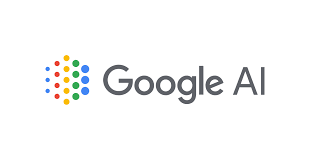

Google has established itself as a frontrunner in the race to develop quantum computing technology. The tech giant's efforts in this field are primarily channeled through its Google Quantum AI division, which aims to build and use quantum computers to solve problems of practical importance. Google's approach combines cutting-edge hardware development with advanced algorithm research and software tools, positioning the company at the forefront of quantum innovation.
At the heart of Google's quantum computing strategy is the development of superconducting qubit technology. This approach has led to significant milestones, including the claim of achieving quantum supremacy in 2019 with their Sycamore processor. Google's quantum computers operate at extremely low temperatures, close to absolute zero, to maintain the delicate quantum states necessary for computation.
Google's quantum computing initiative is not limited to hardware development. The company has also invested heavily in quantum software and algorithm development. They have created tools like Cirq, an open-source framework for writing, manipulating, and optimizing quantum circuits, and TensorFlow Quantum, which integrates quantum computing algorithms with machine learning.
One of the key aspects of Google's quantum strategy is its focus on practical applications. The company is exploring how quantum computers can be used to solve real-world problems in fields such as chemistry, materials science, and optimization. This includes research into quantum simulations of molecular systems, which could have profound implications for drug discovery and materials development.
Google's quantum computing efforts also extend to building a quantum ecosystem. Through collaborations with academic institutions, industry partners, and its own research publications, Google is contributing to the broader advancement of quantum science and engineering. The company's Quantum AI campus in Santa Barbara, California, serves as a hub for this collaborative approach, bringing together experts from various fields to push the boundaries of quantum technology.
## Technical Deep Dive
Google's quantum hardware is based on superconducting qubit architecture. Their qubits are made from superconducting electrical circuits that exhibit quantum behavior when cooled to extremely low temperatures. The Sycamore processor, which famously demonstrated quantum supremacy, uses 53 qubits arranged in a two-dimensional array. Each qubit is a nonlinear oscillator made from aluminum circuits on a silicon substrate, and they are coupled to their nearest neighbors, allowing for the implementation of two-qubit gates between adjacent qubits.
The quantum gates in Google's system are implemented using microwave pulses. Single-qubit gates are realized through resonant drives at the qubit frequency, while two-qubit gates use drives that bring the qubits into resonance with each other. Google has developed high-fidelity gates, with single-qubit gate fidelities exceeding 99.9% and two-qubit gate fidelities above 99.5%.
Google's quantum supremacy experiment used a technique called random circuit sampling. This involves applying a sequence of random quantum gates to the qubits and then measuring the output. The claim of quantum supremacy was based on the assertion that this task would take thousands of years on classical supercomputers, while their quantum processor could perform it in minutes. However, it's important to note that this specific task doesn't have immediate practical applications.
On the software side, Google has developed several key tools. Cirq is an open-source Python framework for writing, manipulating, and optimizing quantum circuits. It provides a way to represent quantum gates and circuits, and includes tools for simulation and optimization. OpenFermion is another Google-developed tool, specifically designed for simulating fermionic systems and molecular chemistry on quantum computers.
TensorFlow Quantum is a software framework that integrates quantum computing algorithms with machine learning. It allows developers to create hybrid quantum-classical models, where part of the computation is performed on a quantum circuit and part on a classical neural network. This is particularly relevant for near-term quantum algorithms like the Variational Quantum Eigensolver (VQE) and the Quantum Approximate Optimization Algorithm (QAOA).
Google is also working on error correction techniques, which are crucial for building large-scale, fault-tolerant quantum computers. They are exploring surface codes, a type of quantum error correction code that is well-suited to the planar architecture of their superconducting qubit systems. Surface codes can detect and correct both bit-flip and phase-flip errors, which are the two main types of errors in quantum systems.
In the realm of quantum algorithms, Google is investigating a wide range of applications. They are particularly interested in quantum simulation of chemical and materials systems. This could potentially allow for the accurate modeling of complex molecules and materials, with applications in drug discovery and the development of new materials for energy storage or conversion.
Google is also exploring quantum optimization algorithms. While general quantum optimization algorithms are not expected to provide exponential speedups over classical algorithms, they may offer significant constant-factor improvements for certain problem classes. This could be particularly relevant for logistics, finance, and machine learning applications.
Another area of focus is quantum machine learning. Google is investigating how quantum computers might be used to enhance or speed up machine learning tasks. This includes research into quantum neural networks, quantum support vector machines, and quantum versions of principal component analysis.
To support their quantum hardware and software development, Google has invested in advanced cryogenic systems and control electronics. Their dilution refrigerators can cool quantum processors to temperatures below 20 millikelvin. They have also developed custom control and readout electronics capable of generating the complex sequences of microwave pulses needed to manipulate and measure their qubits.
Through these comprehensive efforts in hardware, software, and algorithm development, Google is positioning itself as a leader in the quantum computing field. While practical, large-scale quantum computers are still years away, Google's work is laying the foundation for a future where quantum computers can tackle problems beyond the reach of classical systems.
